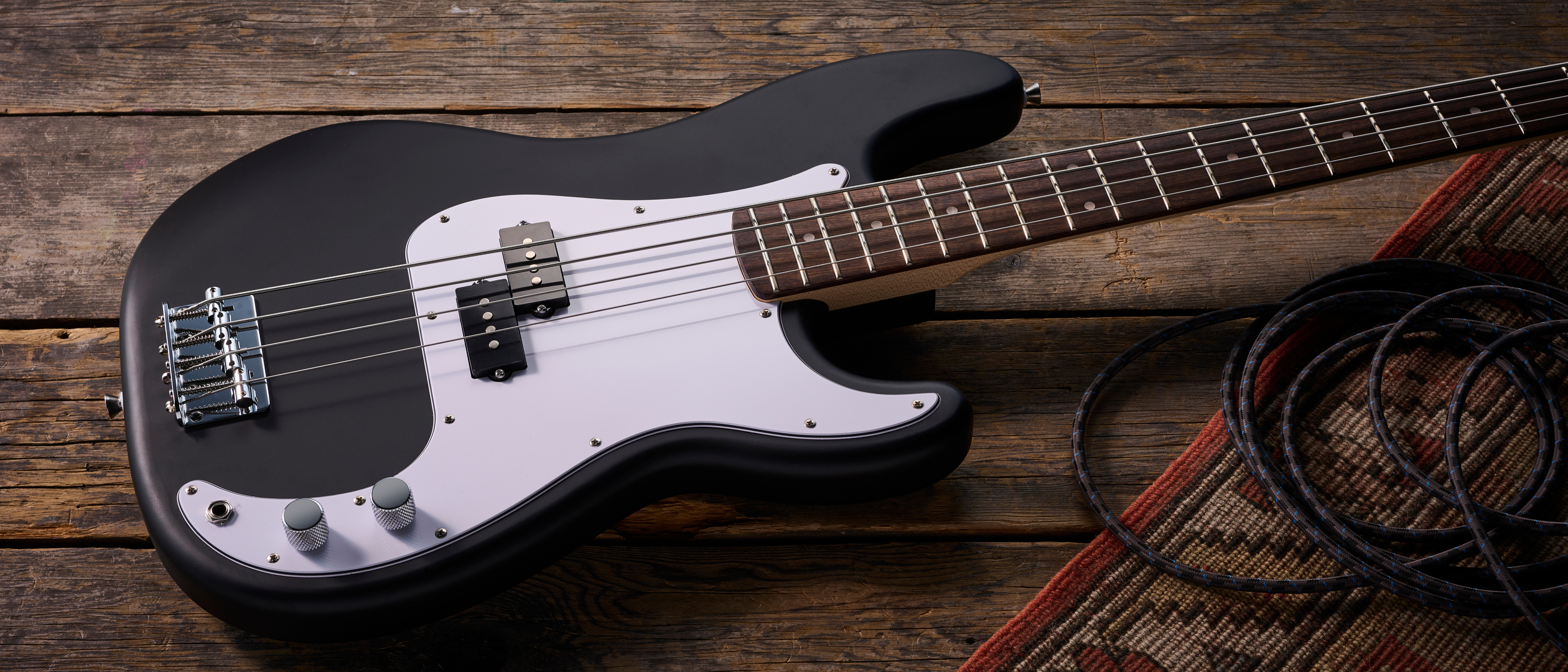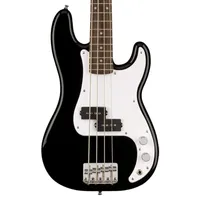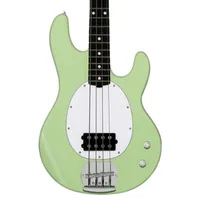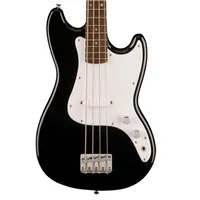Guitar World Verdict
The Squier Debut Series Precision Bass is a bargain with some possible caveats, but once I dealt with the setup and build issues out of the box, a very playable instrument emerged.
Pros
- +
Sleek matte finish is something different and appealing for Squier.
- +
Comfortable neck and light weight.
- +
Excellent introduction to P-Bass sounds.
Cons
- -
Sharp fret ends.
- -
Action far too high out of the box.
- -
Truss rod nut is awkward to adjust.
You can trust Guitar World
What is it?
Fender teaming up with the world's biggest online retailer makes a lot of obvious sense, especially when it comes to reaching brand-new electric guitar and bass players. So an exclusive Squier series is hardly a curveball. The aggressively low prices are more surprising.
Fender is clearly very keen to gets its iconic Tele, Strat and P-Bass body shapes and C-shape necks in the hands of as many players as possible with its lowest Squier price points right now. But that doesn't have to mean that only newer players – enter me with my bass guitar ambitions.
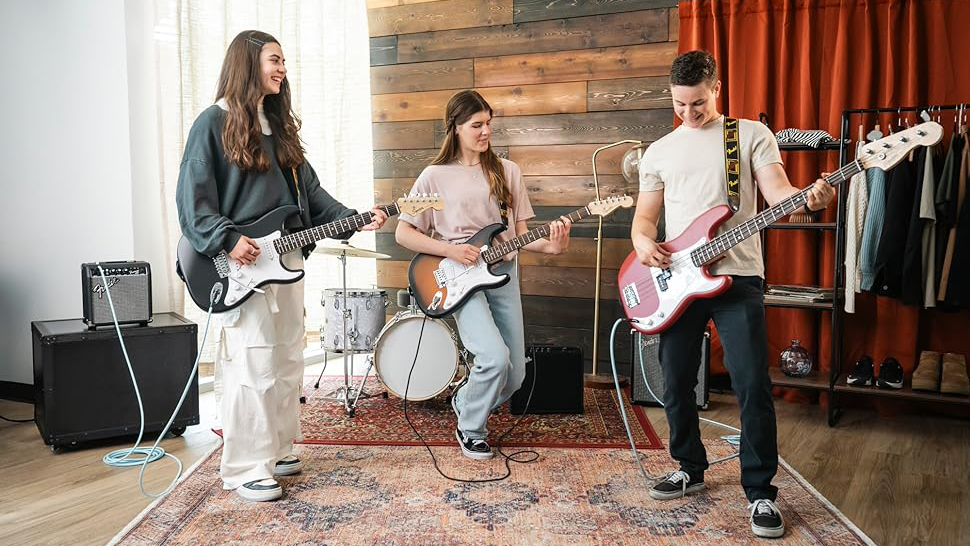
I've spoken to many guitarists over the years who praise the benefits of picking up bass – it offers a new level of appreciation for the bassist in your band for starters, but it can also get you writing songs around the rhythm section first and also thinking more about how basslines can enhance guitar parts and compositions as a whole.
I used to own an entry-level Yamaha beginner bass back in the late '90s when I had Jeff Ament ambitions, but a recent conversation with a friend sparked a new four-string interest.
He was doing some recording and wanted the classic P-Bass sound on a budget, so he went out and bought one – the cheapest he could find. And the Squier Debut Series Precision Bass wasn't just a cheap stopgap for him either; he was thoroughly impressed by it when it arrived at his door.
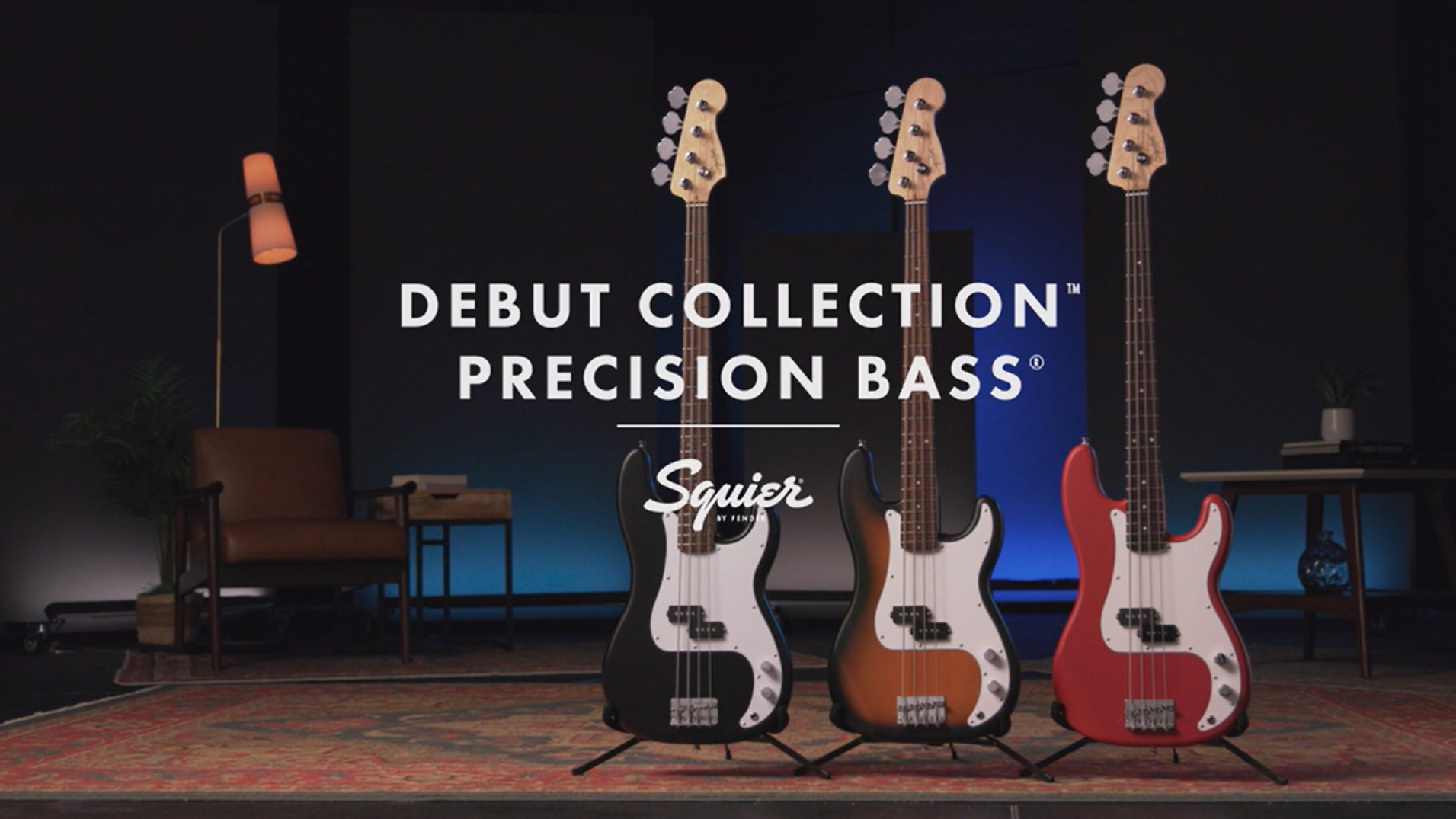
I was running out of excuses not to click 'buy', and the series-exclusive matte finish pushed me over the edge
He sold me on the idea enough to peruse further, and I found the Black finish option for £129.99 ($155.99) on the UK Amazon site. Further sweetening the deal, there was an interest-free repayment plan. I was running out of excuses not to click 'buy now', and the series-exclusive matte finish pushed me over the edge.
So here I am, the owner of a bass again. A bargain bass. What could possibly go wrong?
All the latest guitar news, interviews, lessons, reviews, deals and more, direct to your inbox!
I'm not reviewing this just from the perspective of an enthusiastic six-stringer (and one spending his own money). The core appeal of the Debut collection is for beginners - young and older. So balancing that price accessibility with the need for newcomer appeal could be a tricky one for Squier here.
Let's find out how well it does.
Specs
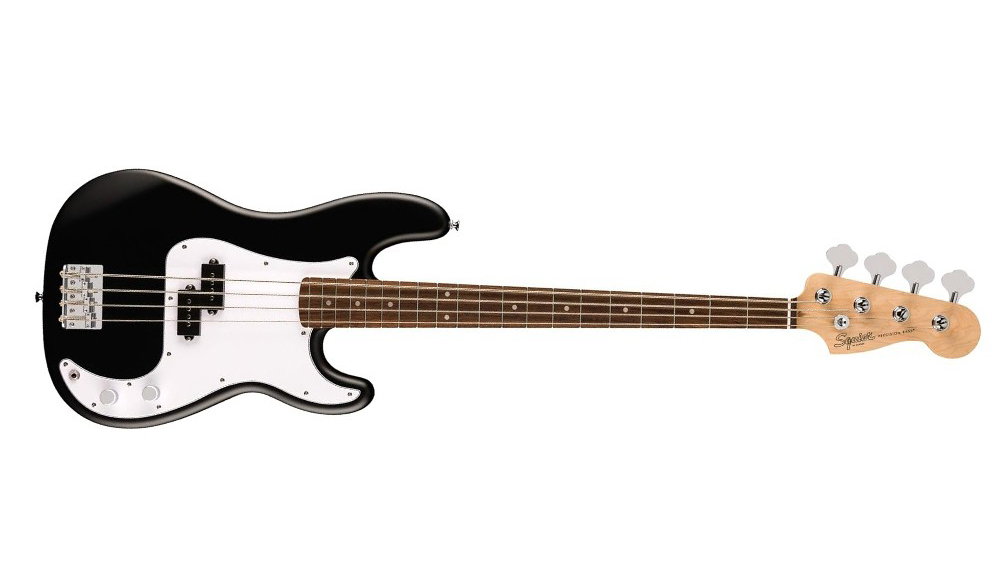
- Launch price: $155.99/£129.99
- Made: China
- Type: Four-string bass guitar
- Body: Basswood
- Neck: Maple / C-shape
- Fingerboard/radius: Indian laurel / 9.5"
- Scale length: 34" / 863.6mm
- Nut/width: Synthetic bone / 38mm
- Frets: 20
- Hardware: Squier cloverleaf nickel open gear tuners, four-saddle hardtail nickel bridge
- Electrics: Squier split single-coil, 1 x volume, 1 x tone
- Weight: 8lb / 3.62kg
- Left-handed options: No
- Finishes: Black, Dakota Red, 2-Tone Sunburst, Daphne Blue, Seafoam Green
- Cases: Not included
- Contact: Amazon
Build quality
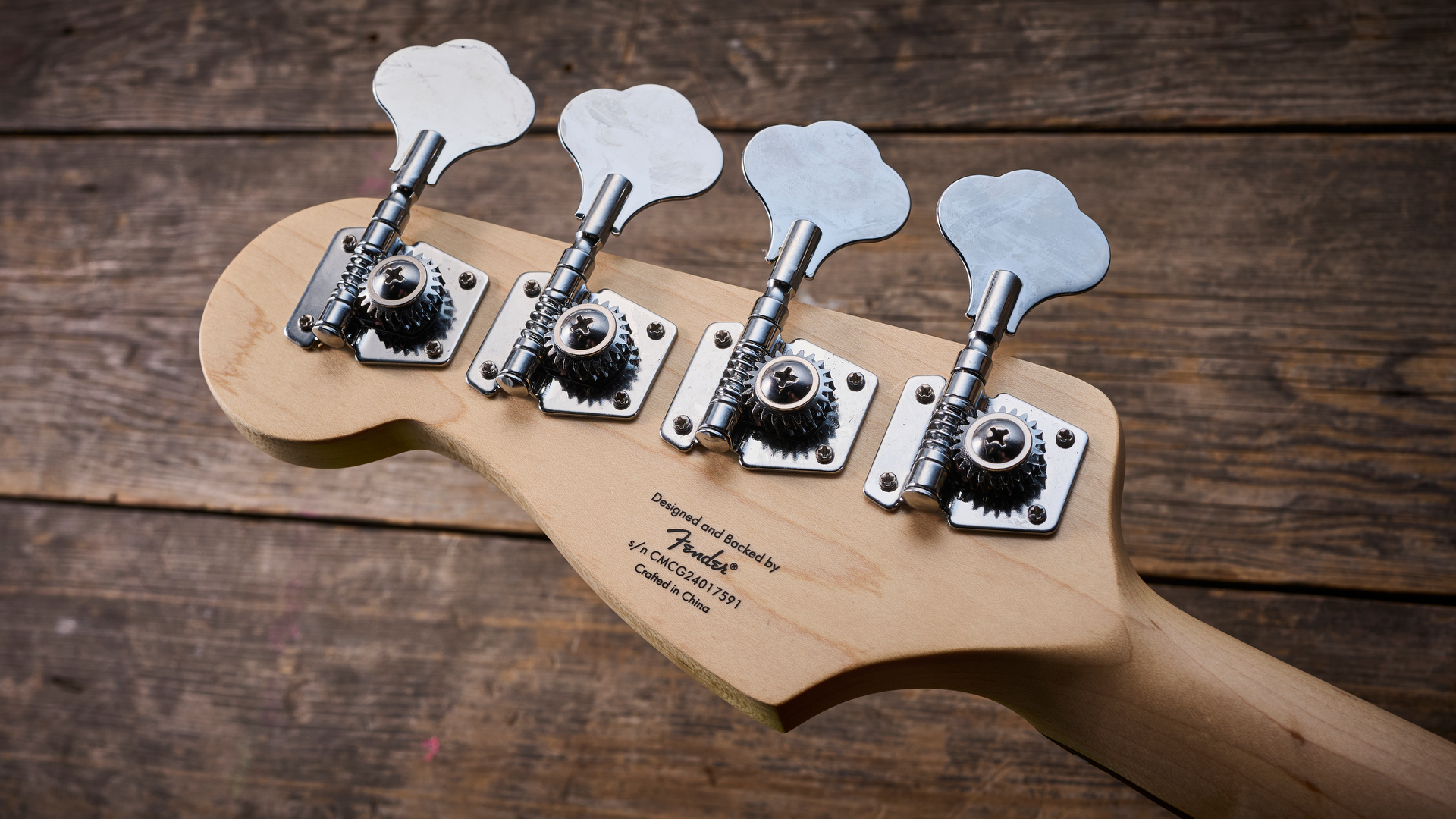
Build quality rating: ★★★☆☆
The Squier Debut Series Precision arrives at my door with typical Prime speed, and it's the most well-packaged instrument I can recall receiving from the Fender stable. The problem is, it's a little too well packaged.
While the paper cover over the strings is an appreciated touch, plastic wrap covering over each of the cloverleaf tuners seems a bit much. And as I remove them they leave residue marks all over the polished nickel. I end up having to use rubbing alcohol to get them back to their best.
It's a good first impression aesthetically
But elsewhere it's a good first impression aesthetically; it's hard to overstate just how much of a different vibe the matte black finish brings. It looks more premium than the usual Sonic series spec this bass is an offshoot from. It's attractive – sleek and stealthy. It could be even more so if you swap out the white scratchplate later.
Since I bought mine, Fender has added appealing new finishes with its classic Daphne Blue and Seafoam Green (I think I would have opted for the latter if I'd known it was coming), bringing the total finish options to five with the launch trio of Dakota Red, Black and 2-Tone Sunburst.
The laurel fingerboard of mine looks a little dry out of the box and a feed would really bring out the attractive grain. The back of the neck has a satin finish, which is great for added beginner player comfort. Just don't tell Johnny Marr. But the most striking thing is the weight.
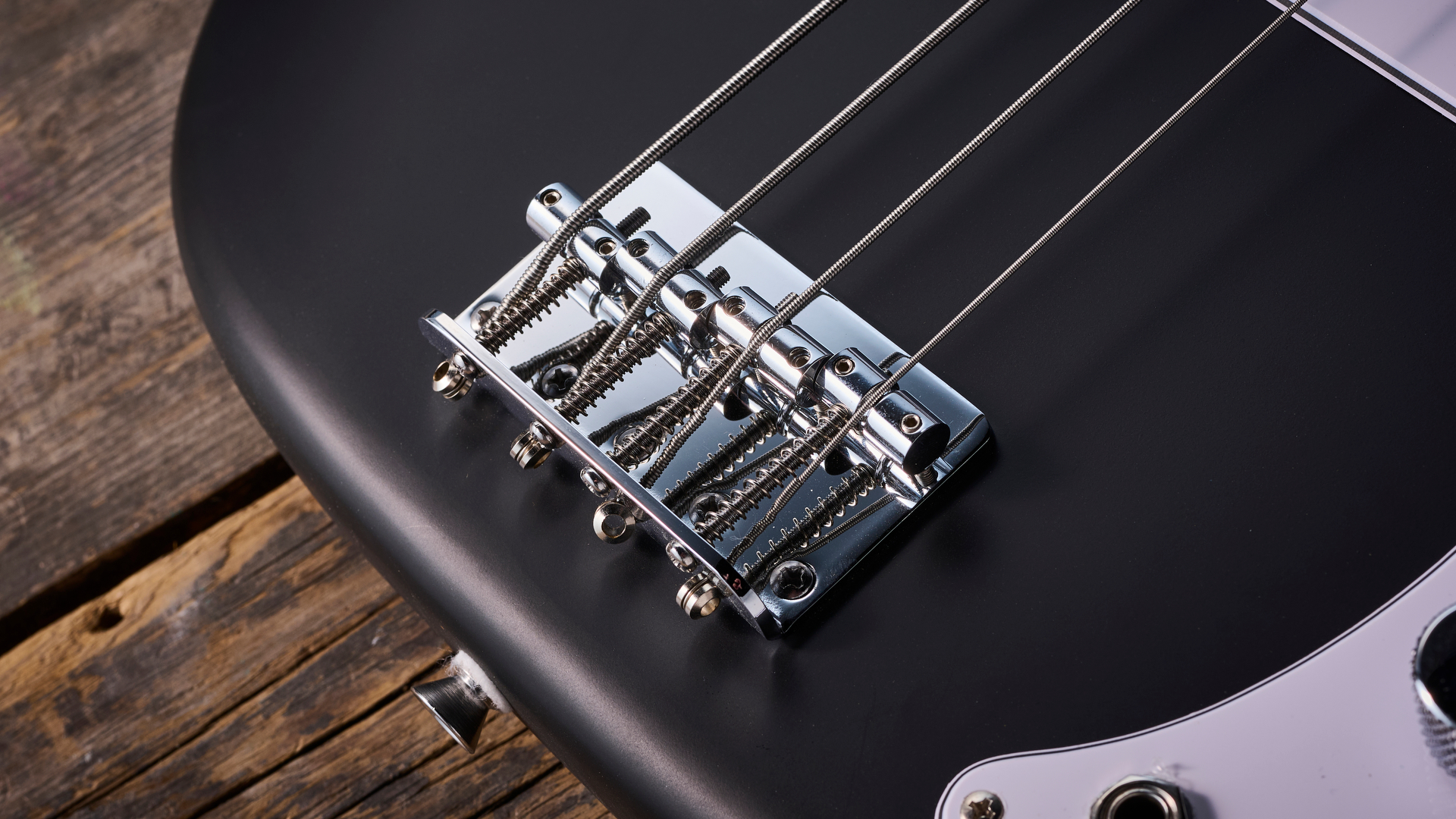
It's not all great news on the build side
This is a light P-Bass at 8lbs – neck-heavy with the wrong kind of strap. The listing for the Debut Series models is very clear on the weight being a conscious decision too. It's not necessarily just about wood selection either – these basswood body instruments are thinner than a lot of their brethren in the Squier and Fender catalogues, measuing 41mm at the thickest point rather than the usual 44mm minimum. This body also features the ubiquitous P-Bass belly contour at the back too – something I'm a big fan of for comfort when standing up.
It's not all great news on the build side, though. The fret ends are the kind of sharp I notice every time I go up and down the neck – they will have to be filed. This issue is usually caused by the fretboard wood shrinking down over time, or simply poor QC.
My usual neck relief test with review instruments also suggests a little adjustment is required, but the included hex key is so difficult to fit in the truss rod nut I initially wonder if it's the wrong size. It turns out it's just a very difficult fit that I can only access by holding the hex key to fit at the extreme sides. This means I need to loosen strings to move them out of the way. And I find this is not an isolated issue.
My friend, who inspired me to buy the Debut Series bass, tells me he has had exactly the same problem with his model. Are we just unlucky? It's an issue I've never encountered on a Fender family instrument before. It's solvable (well there's a workaround/compromise) but it shouldn't have to be dealt with, and it definitely adds time to the process of adjustment as you have to retune two strings each time to check the relief.
The tuners are not as smooth as you're going to find further up the range, but the tuning holds up well in my testing. Those who like to keep their finishes pristine may want to give pause to the matte finish here – when I brought in my bass for the review photoshoot I found it had picked up a line of gloss finish on the back when the instrument had rubbed against something, losing the matte. How this happened, I really have no idea. But it's a reminder that matte finishes can wear to a gloss with repeated contact. Or indeed be polished up to one.
Playability
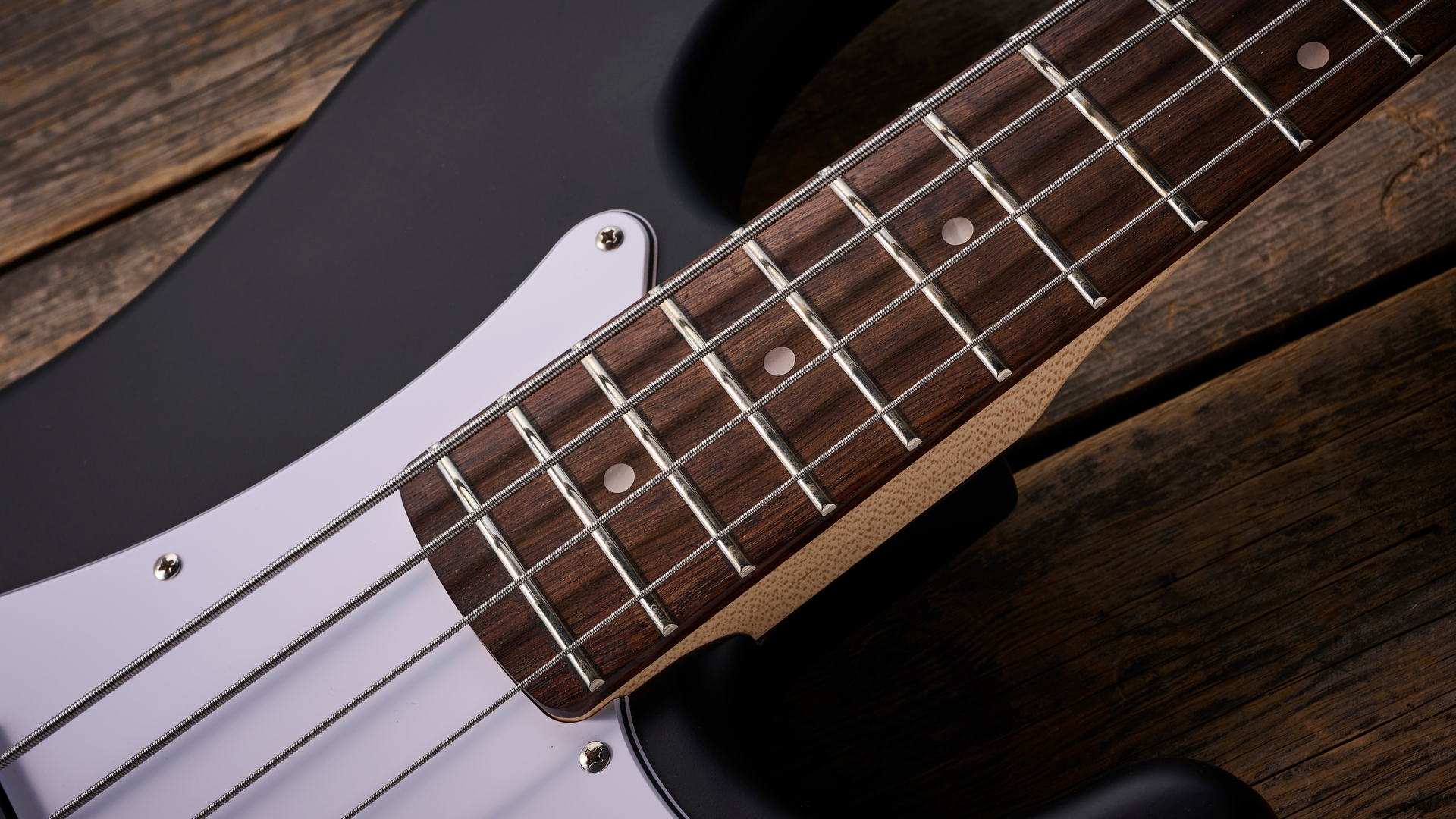
Playability rating: ★★★★☆
Putting aside those sharp fret ends, the light weight, C-shaped neck and satin finish on the back combine should make this a bass that feels welcoming and addictive to play. Although it's a full 34" scale this is one of the most accessible feeling P-Basses I've encountered that could bode well for newcomers. The 38mm nut width is my preferred Jazz Bass width rather than the standard Precision 43mm to make this a friendlier player for smaller hands. Trouble is, there's one big caveat on the bass I've bought.
This is not a friendly action for anyone out of the box - least of all beginners
The stock action on mine is high – very high. I'm a 'how low can I go?' player when it comes to setups but at over 3.25mm clearance from the 12th fret on the low E, this is not a friendly action for anyone out of the box - least of all beginners. I'm obviously going to have to lower the action considerably to have any kind of future with this bass.
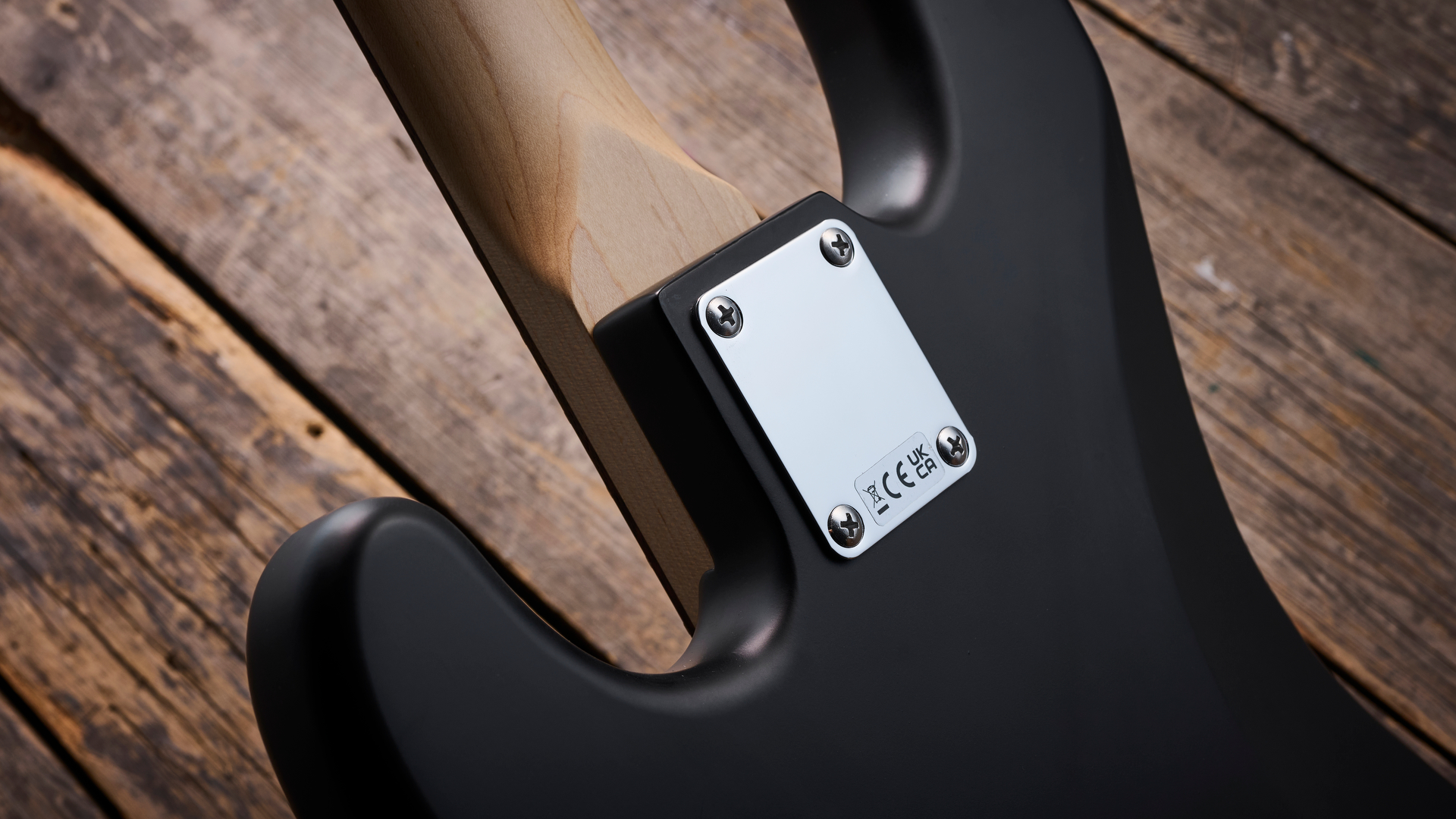
Again, not something a beginner bass player would (or really should have to) consider. And although I do think a setup is worthwhile for any new instrument, it would add relative cost to the outlay here for a player if they need to take it to a paid tech. But it's just too high to leave it. Just as the fret ends are too sharp to ignore in the longer term.
It's quite a significant adjustment to get it to the low-medium realm of 2.15mm clearance on the E and 1.90mm on the G string. My trusty MusicNomad Precision Setup Gauge Kit – easily the most useful guitar toolkit I have – helps a lot. And with a little more truss rod and intonation adjustment I have a much more playable bass.
My immediate fear when taking the action down, and tweaking over a two-day period (the neck can move further under the change in tension on the strings) before it settles is that the bass will be more open to fret buzz that wasn't detectable with a higher action. I'm relieved to find there's only a couple of spots that buzz with harder picking, and a check with a fret rocker reveals these are high spots. Not something I'm surprised to find on most new guitars and another one for the guitar setup to-do list.
Sounds
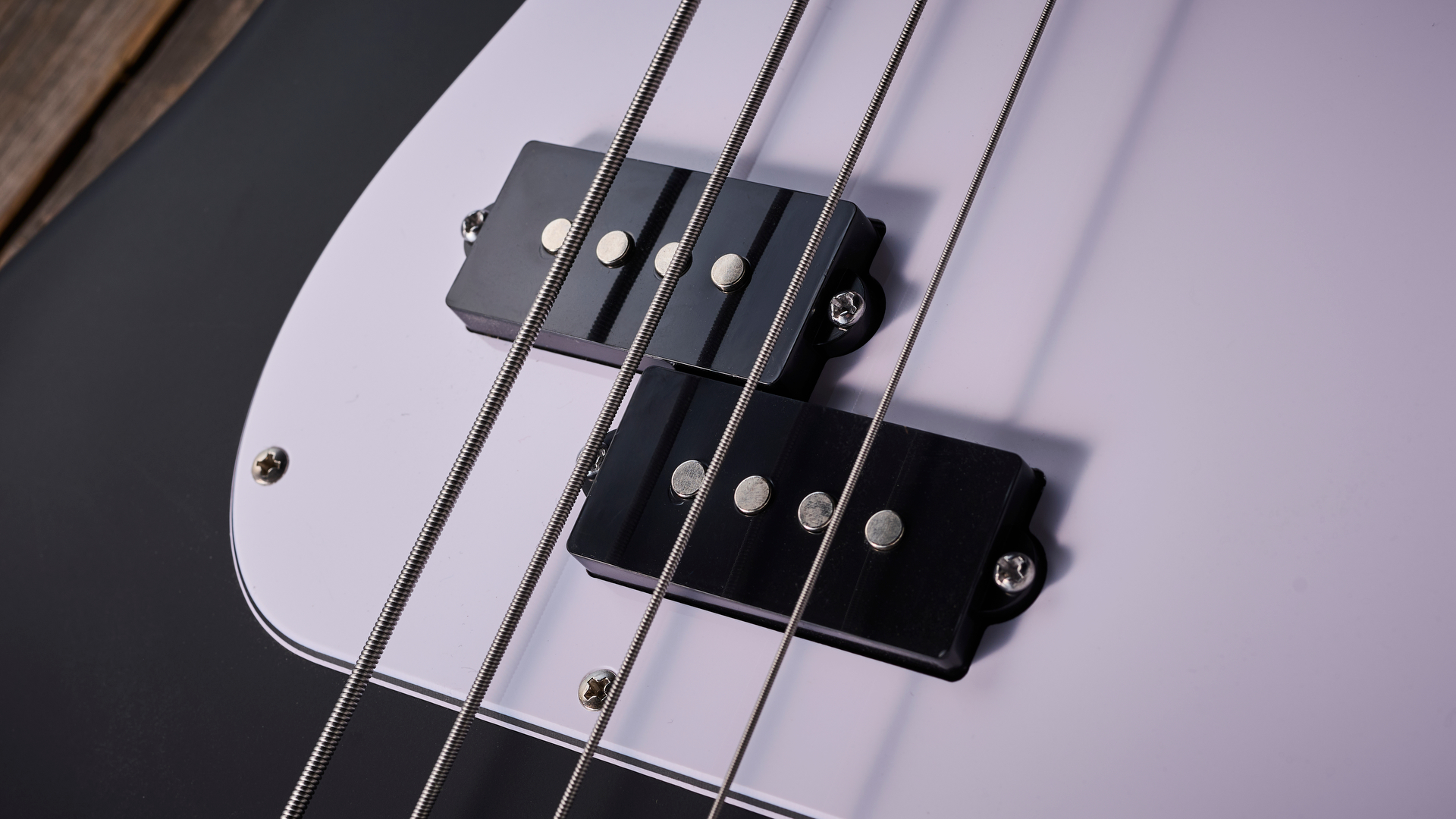
Sounds rating: ★★★★☆
Squier has always done a good job of capturing the fundamentals of the iconic Fender instruments it has based models on, and that's absolutely the case here
With the action lowered this bass becomes a real joy to play, and it's helped a lot by a surprisingly resonant acoustic performance that means I can happily play around the house with it when I don't have an amp or plugin to hand. And as a new bass player I'll need the practice!
Squier has always done a good job of capturing the fundamentals of the iconic Fender instruments it has based models on, and that's absolutely the case here with the most recorded electric bass design of all time – one that's proved hugely versatile across a wealth of musical genres since it emerged in 1951.
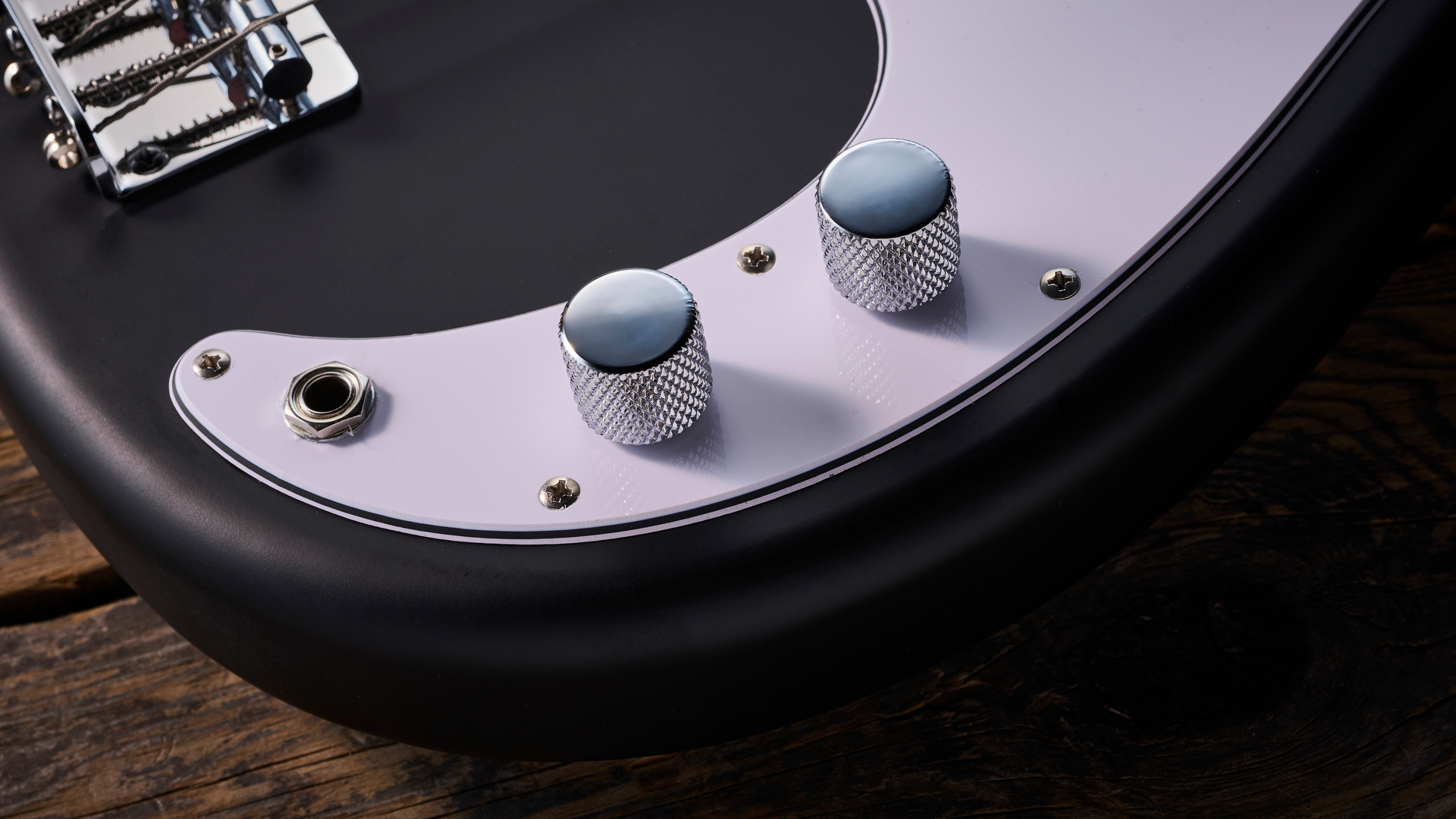
Quote text here
The true value of the P-Bass isn't versatility in terms of tonal variation – there's no active circuitry here of course – but it's the core sound that makes it fit so well with drum frequencies, without the aide of outside EQ.
The split pickup design helps with definition so the P Bass can balance warmth across the strings with a punchiness good enough for punk. And I find it here as I test the Debut Series Precision through a Positive Grid Spark 40's bass amp models with a few effects, as well as some amp captures on the Neural DSP Nano Cortex through a Line 6 Power Cab. 'Balance' is an easy term to throw around but this bass sounds and feels right without any fuss.
The higher register and even the G don't betray tinniness with the tone control maxed, and it will definitely suit my bass recording needs.
Verdict
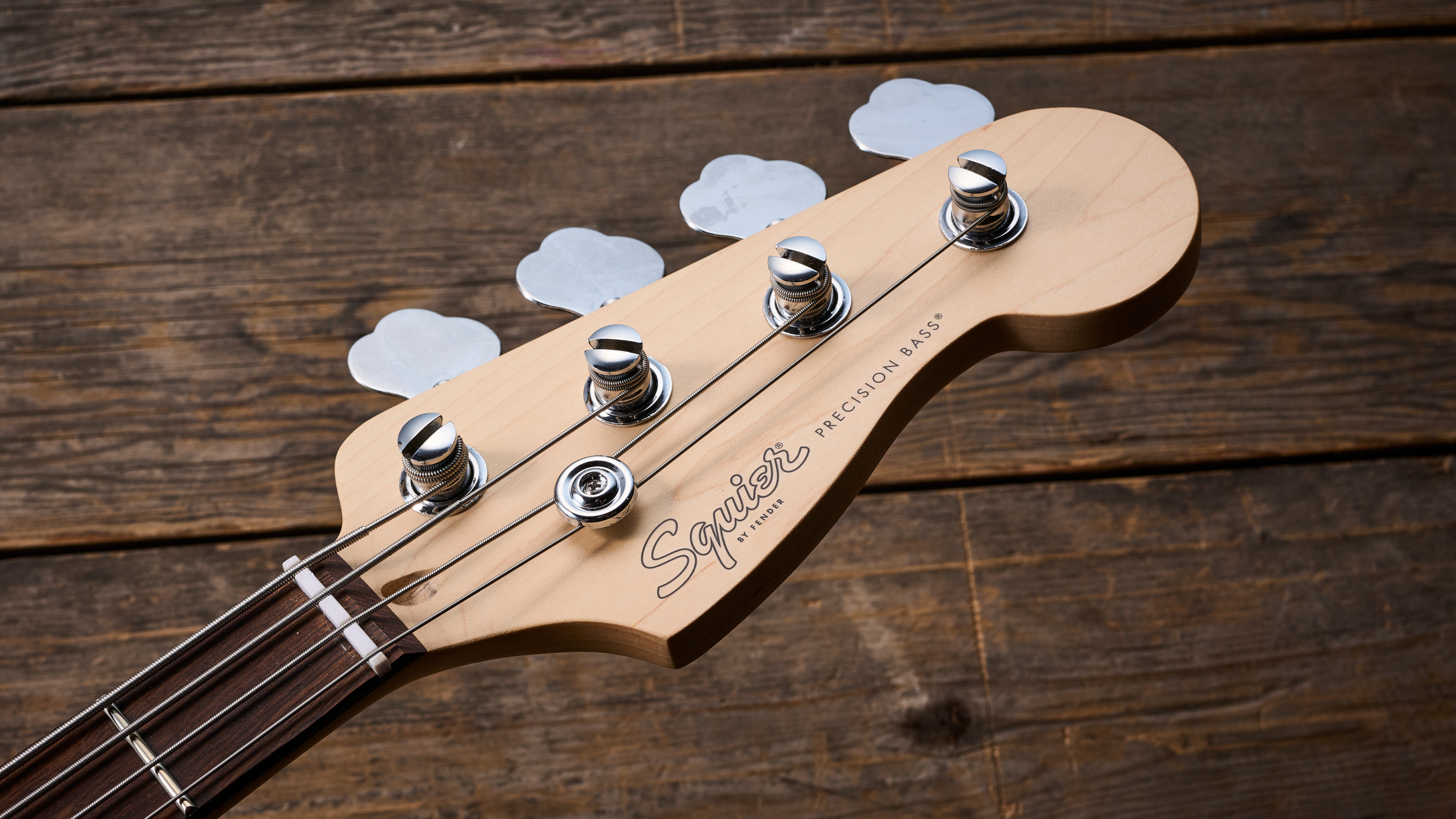
I've had the word 'expectation' on my mind a lot while testing the Squier Debut Series Precision Bass. There were things I didn't expect – the high action and difficulty adjusting the truss rod. But also just how playable and likeable this bass became once I'd sorted those issues.
I like modding Fenders – to make them more customised to my tastes, but also to invest a little and see what they're capable of becoming. Right now with this bass after putting it through plugins for recording, I don't really feel like I need to change it – beyond perhaps a red tortoiseshell scratchplate to match my Mustang and Tele!
But getting back to expectation, what do we really expect from a $155 bass? Perfection out of the box? There are hidden costs when things aren't quite what we hope for from an online guitar purchase – and you either send it back, do the work yourselves to put them right, or you pay someone who can.
Wood and metal under the tension of strings move, and that can create issues that need further adjustment, and in my experience, those issues tend to be more common on cheaper guitars.
For beginners though, it might not be that simple. And that's when the advice and extra service of a good music shop can justify higher prices – a shop with trained staff who can deal with possible out-of-the-box issues before the instruments go on sale.
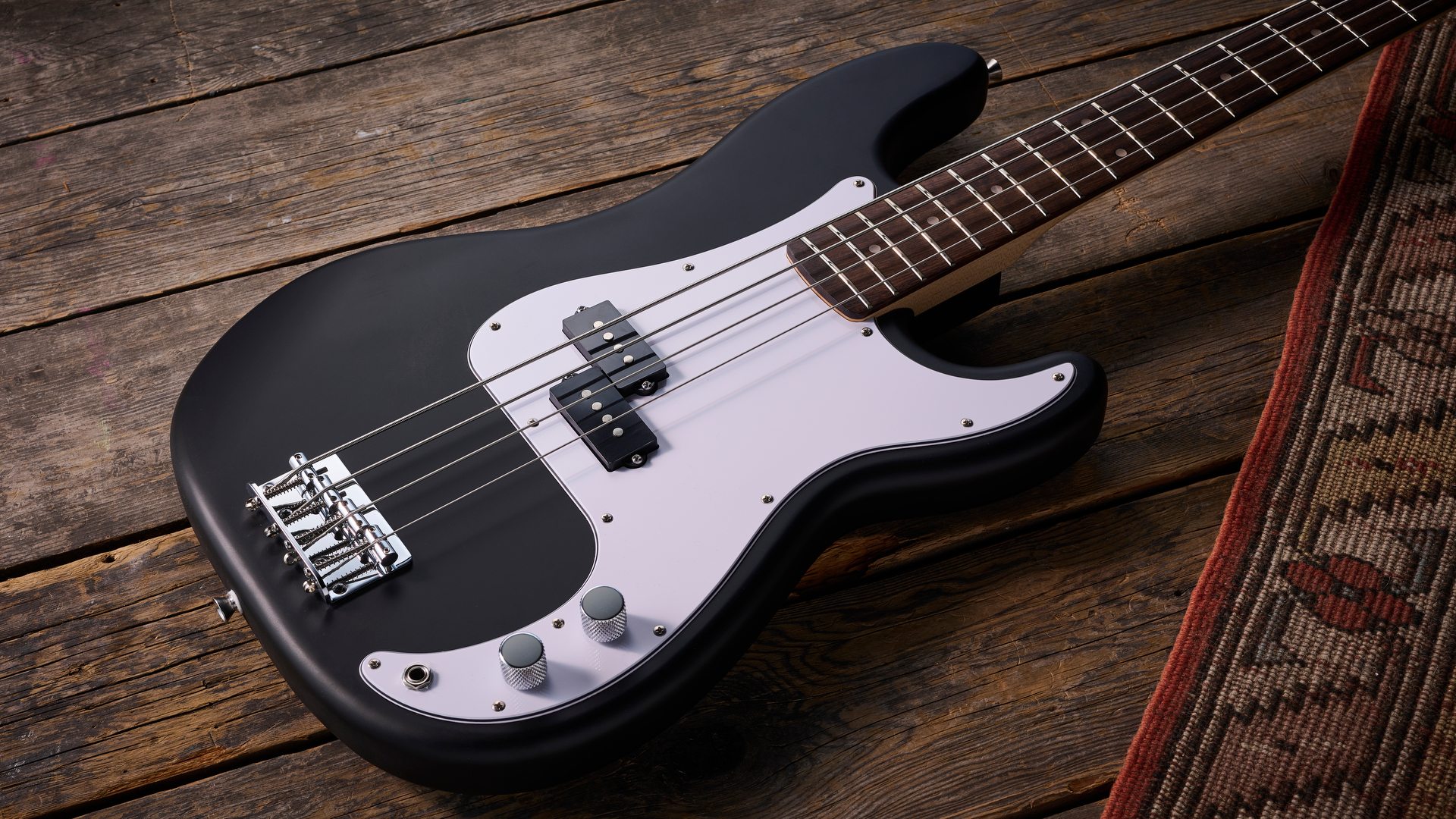
As a new player in the '90s, with dial-up internet still ahead on the great virtual horizon, I didn't know about adjusting a truss rod – and I certainly didn't know how to lower the action or file sharp fret ends. It's worth learning at least some of these things in time, but when you're first getting to grips with an instrument, you have enough to digest and physically adapt to.
In the Squier Debut Series Precision Bass's potential favour is Amazon's return policy and Fender's own two-year guarantee if you do find any issues you aren't prepared to deal or live with. I think this bass still stands up as excellent value and I have zero buyer's remorse. I do think younger, smaller players may want to go for a shorter-scale Squier bass like the Sonic Series Bronco or Affinity Jaguar. But both are more expensive than this.
And that's not surprising – this really is a great price for a Squier bass. Whether it's your first bass, a modding project or like me, a go-to recording tool.
Guitar World verdict: The Squier Debut Series Precision Bass is a bargain with some caveats, but once I dealt with the setup and build issues out of the box, a very playable instrument emerged.
Test | Results | Score |
|---|---|---|
Build quality | Matte finish and light weight are appealing – a difficult to adjust truss rod and sharp fret ends less so. | ★★★☆☆ |
Playability | Very comfortable neck once I'd lowered the overly high action. | ★★★★☆ |
Sounds | Encapsulates the appeal of the P-Bass in an affordable package. | ★★★★☆ |
Overall | Excellent price and performance, even with some QC issues that needed addressing. | ★★★½ |
Also try
Squier Mini Precision Bass - $199/£149
Less bass but higher price, still, this 3/4-size model is the way to go for children who will physically struggle with a full-scale instrument like the Debut.
Read more: Squier Mini Precision Bass review
Sterling By Music Man Intro Series StingRay Ray2 – $249.99/£349
Big name and big value – despite the step up in price from the Debut (especially in the UK) you're getting a solid Stingray deal here.
Read more: Sterling By Music Man Intro Series StingRay Ray2 review
Squier Sonic Bronco Bass - $229.99/£169
One pickup like the first Precision Basses keeps things simple and the 30" scale is better for children or anyone who wants an easier transition from guitar to bass.
Read more: Best beginner bass guitars

Rob has 20 years of experience writing, reviewing, interviewing and editing for guitar magazines and websites, including Guitarist and Total Guitar.
Over the years he's interviewed artists including Metallica, Black Sabbath, Pearl Jam and Soundgarden, but he's lost count of all the guitar gear he's tested.
He's now Reviews Editor for GuitarWorld.com, Guitar World magazine and MusicRadar guitars, heading up our in-house reviews team to give you in-depth and honest tests of the latest guitar gear. He eats and dreams reviews.
You must confirm your public display name before commenting
Please logout and then login again, you will then be prompted to enter your display name.
